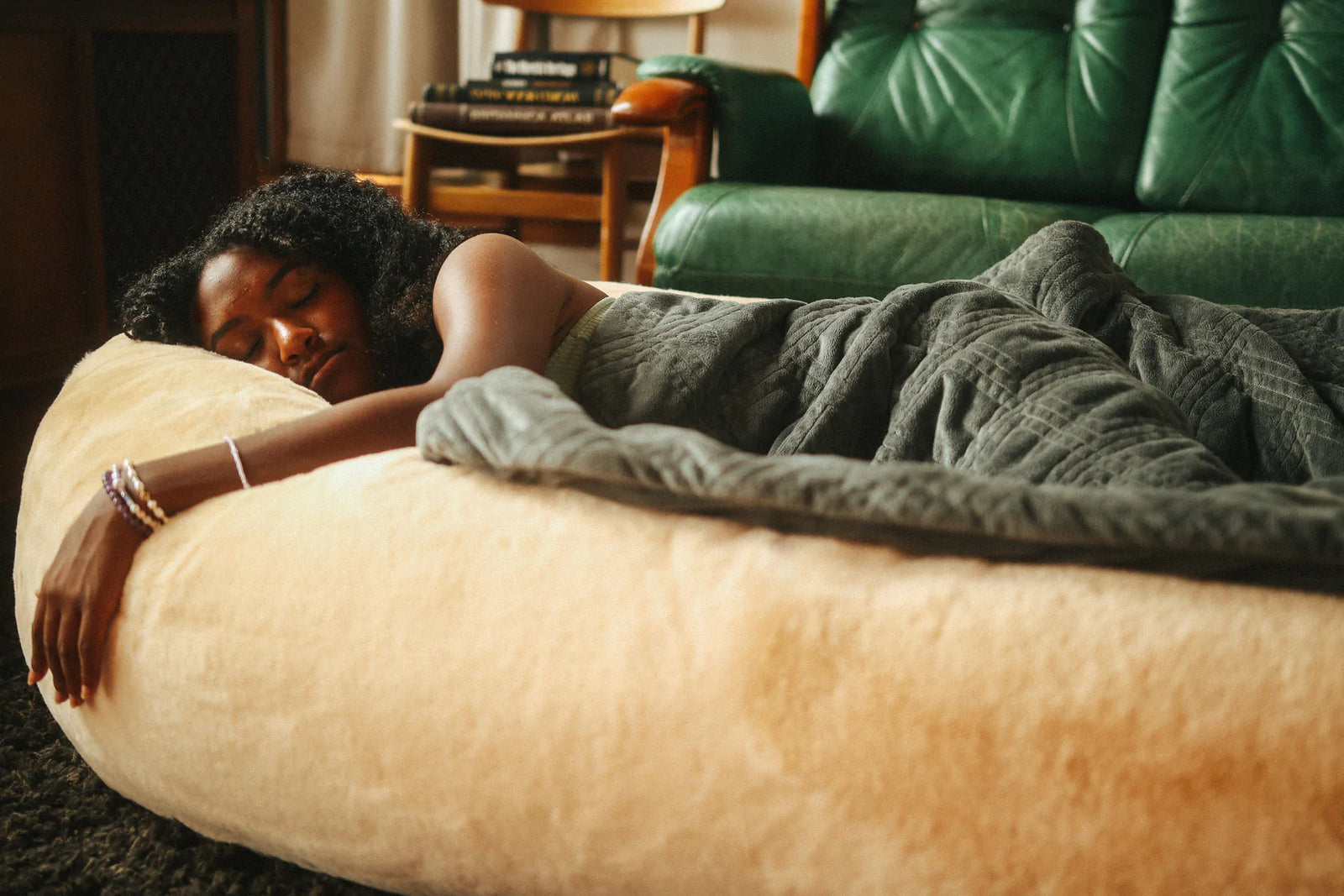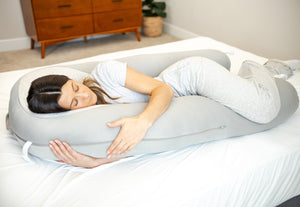Napping may sound like a great idea, but have you looked into the pros and cons of naps? If not, you need to read this article!
Like anything in life, there are pros and cons of napping. But do the pros outweigh the cons?
You may have questions regarding the health and productivity effects of napping. A few determinable factors can make or break the benefits of napping. And in this article, we detail how to easily avoid these health risks to reap the benefits that coincide with napping so you can focus on relaxing and scoring some z’s!
Pros and Cons of Napping: Everything You Need to Know
What are the pros and cons of napping? We have the answers to your questions below!
Pros of Napping
There are more than a few pros of napping, each benefiting you and leading to improved quality of life. Check them out below to see what you can gain from taking quality naps!
Better Mental Alertness
Studies have shown that napping improves mental alertness, especially naps under 30 minutes during your natural circadian dip. In addition, these perfectly timed naps enhance cognitive performance, attention, and mood for the rest of the day!
Boosted Immune System
Quality of sleep and the immune system are tied together. Without quality sleep, the immune system can become weak, resulting in the heightened risk of sickness. Thus, napping is a great way to compensate for the lack of sleep the night before by helping the immune system recover and boost it to protect the body against any health risks.
Better Memory Recall
Sleeping has been connected to cementing events and new learnings in the brain and memory. Taking a power nap can aid in memory recall by giving the brain the necessary time to adjust to recent happenings, theories, and learned skills. The brain undergoes three distinct phases when learning new skills: acquisition, consolidation, and recall.
The consolidation phase is connected to sleep. Research from Harvard has shown that sleep plays a critical role in how we as humans consolidate what we’ve learned. Of course, different amounts of sleep can be suitable for varying types of recall. With that said, any bit of extra sleep can be great for improved memory recall.
Energy Boost
Without sleep, our bodies can’t regulate hormones, blood sugar, and other bodily functions. This is because when the body is not rested, its reaction to the hormone insulin is hindered. This hormone is needed to regulate blood sugar.
Other hormones in the body are impacted as well, many of which are necessary to regulate growth and development, cell reparation, hunger, and other critical bodily functions.
That said, adding napping to your routine can optimize the body’s natural hormone response and help you obtain an energy boost to overcome the rest of your day.
Increased Stamina & Athletic Performance
Napping has been verified to be beneficial for athletes and athletic performance. In addition, it has been tied to benefits in perceptual measures, physical and cognitive performance, psychological state, and night-time sleep.
Your body requires quality sleep to focus on repairing cells and resetting the body to its normal state. Being awake for too long will result in the body focusing on the day’s happenings rather than focusing on repairing the body. Inefficient sleep or a lack of quality sleep is also inadequate as it does not give the body enough time to repair and recover fully.
Napping can be great for adding necessary recovery time for the body if you haven’t gotten enough sleep the night before. Sleep plays a crucial role in the body’s healing process, and directly correlates to how quickly (and how well) your physically and mentally recover.
Cons of Napping
There are some cons of napping to take note of, but thankfully, they are all avoidable. By regulating your napping time, you can gain all the benefits from napping while avoiding any cons discussed below. We’ll talk more about that in a minute. First, here are the cons of napping…
Risk Of Disease
Before you panic, let’s discuss the circumstances in which napping can raise the risk of disease.
The European Society of Cardiology discovered that consistent napping over 60 minutes increased the risk of cardiovascular disease, diabetes, and metabolic syndrome. This risk is easily avoidable by regulating your naps to the proper time frame.
Risk Of Insomnia
If you struggle to fall asleep at night and consistently take naps during the day, your napping habit may be responsible.
Of course, napping can be a great way to recover from a poor night of sleep. But naps should not be used in place of your nightly sleep - rather, to supplement it. Don’t stay up at night and justify it by saying, “I’ll take a nap tomorrow afternoon to make up for it…”
Another factor that can result in insomnia is not regulating nap times to your circadian rhythm. Naps taken later in the afternoon will often lead to issues falling asleep at nighttime.
Insomnia related to napping is avoidable. Just regulate your naps by aiming for 30 minutes or less and time them to align with your circadian rhythm. And for people who struggle with napping and ask, why can’t I nap during the day? The answer often lies in promoting a nap-friendly environment and setup to allow your mind and body to settle down. But we’ll go more into detail on that below. First, let’s see if the pros of napping outweigh the cons!
So - Do the Pros of Napping Outweigh the Cons of Napping?
Now that we’ve discussed the pros and cons of napping, it’s time to make a decision. Is it worth napping? Do the pros outweigh the cons? Yes.
With that said, proper napping practices should be noted to prevent avoidable health risks and obtain all the outstanding benefits naps have to offer.
The pros heavily outweigh the cons of napping. The cons of napping are easily avoidable once napping time is regulated. Once you regulate napping time, the health benefits from napping will flow to you---from improved sleep, better stamina, and a boosted immune system!
Tips for Reaping the Benefits of Naps While Minimizing the Negative Effects
If you want tips for reaping the benefits of naps while minimizing the adverse effects, continue reading below!
Get the Right Napping Setup
Getting the right napping setup is important to allow the body to settle down for rest. This study showed the importance of napping position and setup on nappers physiologically and subjectively post-nap. To receive the full range of benefits from napping, you need to invest in a quality napping setup that promotes the most comfort and sensory relief to allow your mind and body to settle down.
Plufl’s giant dog bed for humans is the first of its kind, promoting all the comfort, relaxation, and support needed for the best power nap of all time!
Designed with supportive orthopedic and memory foam, handles for easy storage and transportation, ultra soft machine washable cover, and huggable plush pillow bolsters, this is the ultimate napping product you didn’t know you needed until now.
The built-in pillow bolster allows you to elevate your feet to reduce tension and improve comfort. The ultra-soft, soothing material helps reduce stress and anxiety. And an optimal design feature was added so you can tuck your hands and feet under the plush pillow border to promote sensory relief.
So, whether you are taking a power nap or simply relaxing on your lunch break, you’ll find tension, stress, and anxiety leaving you so you can fall into deep relaxation and catch some zzz’s.
Regulate Napping Time
As discussed previously on the pros and cons of naps, regulating napping time can reduce the risk of harmful side effects you’ve learned about.
Aim to nap in the early afternoon, around 1-3 pm where people most commonly experience a dip during their circadian rhythm. This can help you avoid any lasting side effects on nighttime sleep.
Ensure that you keep naps short, anywhere from 10-30 minutes at the latest. Naps of this length come with all the pros of napping without any cons of insomnia or raised health risks. However, napping for an hour or more can result in an impaired circadian rhythm, where you wake up groggy or cranky and may not be able to fall asleep successfully at night.
So, set your alarm when you lay down for a quick nap - and don’t you dare hit that snooze button!
Give Caffeine Naps a Try
If you’ve never heard of caffeine naps, you need to give them a try!
A study discovered that drinking caffeine before a nap can boost performance and alertness compared to those who don’t drink caffeine before taking a nap. If you’re looking to get the most out of your naps, a caffeine nap is the best way to do it!
Final Thoughts on the Pros and Cons of Naps
Throughout this article, we discussed the pros and cons of naps. The pros of napping outweigh the cons, though it is essential to note how to avoid any possible health risks caused by unregulated napping.
And there’s no better way to improve the success of napping than by investing in Plufl’s dog bed for humans! Specifically designed as the ultimate napping product to provide sensory relief, maximum comfort, and reduce tension and anxiety, this dog bed for humans is guaranteed to have you snoozing within minutes. So get yours today to obtain the outstanding health benefits of napping!



